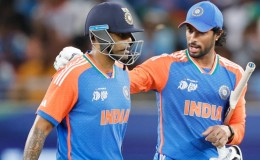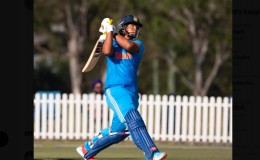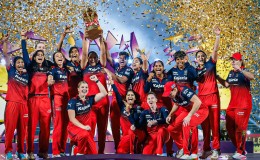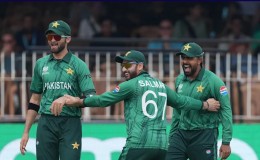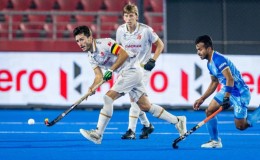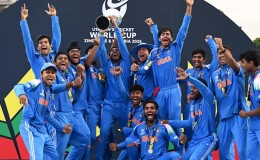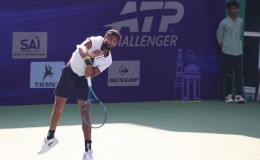In an action replay of last year's recommendation by its cricket committee, the International Cricket Council's chief executive's committee has pitched for mandatory use of the Decision Review System (DRS) following an "independent assessment" of the available technologies, says a report in the Times Of India, adding that the recommendation was made to the ICC's executive board following a meeting of chief executives in Kuala Lumpur as part of the world body's annual conference.
“However like last year it was immediately rejected by the BCCI, which continues to remain the biggest critic of the DRS,” says the report.
A BCCI release said: "The BCCI continues to believe that the system is not foolproof. It also sticks to its view that the decision on whether or not to use the DRS for a series should be left to the boards involved."
The BCCI's stand may be debatable but apart from upholding the accuracy of available technologies through tests conducted by Dr Ed Rosten, a Cambridge University expert in computer-vision technology, the ICC has not introduced anything remarkably new.
The modalities of footing the minimum bill of $10,000 per day - which the use of ball-tracking technologies and the Hotspot will entail - have still not been worked out. Questions are also being raised about whether the ICC introduced these technologies without independent assessment in the first place.
Meanwhile the ICC Chief Executives’ Committee (CEC) met in Kuala Lumpur on 24 and 25 June 2012. Among the decisions and recommendations made were:
Decision Review System (DRS): CEC recommended to the Board the universal application of the DRS after being satisfied with the technology enhancements provided by new Hotspot cameras and the results of the independent research on ball tracking conducted by Dr Ed Rosten, an expert in computer vision technology. Dr Rosten had tested the accuracy and reliability of ball tracking in a recent Test series and concluded that the results were 100% in agreement with the outcomes produced from his assessments
CEC accordingly recommended to the ICC Board that, subject to the Members’ ability to finance and obtain the required technology, DRS should be mandatory for all Tests and ODIs. Furthermore,
o Hotspot cameras must be included in the minimum requirements (two cameras) alongside ball tracking technology;
o a minor amendment to the LBW protocols whereby the ‘margin of uncertainty’ regarding the point of impact with the batsman should be the same as that provided for the point of impact with the stumps.
The number of successful reviews will be retained at two per innings for a Test and one per innings for an ODI.
Haroon Lorgat, the ICC Chief Executive, said: “We have made good progress in independently testing ball tracking and the new enhancements has resulted in the CEC unanimously supporting the ICC Cricket Committee’s recommendation to universally apply the DRS in all Test matches and ODIs.”
Promotion of Cricket: After receiving a detailed match data and consumer research, the CEC agreed that there should be continued and consistent emphasis placed on the promotion of the three formats of international cricket. The CEC noted the enduring popularity of all three formats and recognised the importance of a coordinated marketing approach across all formats.
It was recommended that there should be further development of marketing inventory to assist Members in enhancing the consistency of messaging around the formats. At the same time it was agreed that, in conjunction with the change in playing regulations, there should be further consideration of the branding of ODI cricket, while being cognisant of the high level of interest in 50-over cricket in many countries.
When considering the appeal of the 50-over format, the CEC agreed with the ICC Cricket Committee recommended regulation changes including that powerplays be restricted to the first block of 10 overs and a batting Powerplay of five overs to be completed before the start of the 41st over; a maximum of four fielders to be allowed outside the 30-yard circle in the non-Powerplay overs and the number of permitted short pitched balls should increase from one per over to two.
The CEC supported the introduction of Day/Night Test cricket, with the approval of both participating teams and the provision of a suitable ball as recommended by the ICC Cricket Committee, and noted the extra context that will be granted to Test cricket by the introduction of an ICC World Test Championship in 2017 and to ODI cricket through the introduction of full qualification process for the ICC Cricket World Cup from 2015.
Integrity issues in domestic cricket: The CEC reconfirmed the necessity for all Member Boards to have in place and implement domestic anti-corruption codes. At the meeting, the CEC, after hearing that neither Bangladesh Cricket Board (BCB) nor Sri Lanka Cricket (SLC) have still not incorporated domestic anti-corruption codes, recommended that the ICC Board instruct these Boards to implement codes forthwith and, in the case of SLC, certainly before the start of the Sri Lanka Premier League Twenty20 which is planned for August 2012.

